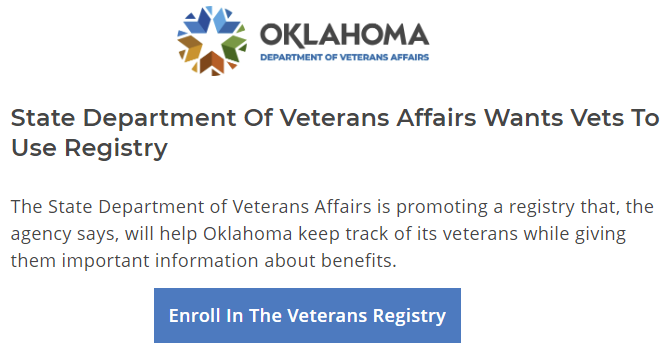“Tired of waiting” is a phrase often associated with appeals. But since the implementation of the Appeals Modernization Act, Veterans who disagree with VA’s decisions on their compensation claims have had a new and quicker way to receive a second look. That benefit has now been extended to Veterans stuck in the legacy appeals process. Dave McLenachan, director of VBA’s Appeals Management Office, unveiled the Decision Review Process last week in a VBA Facebook Live, noting that Veterans with appeals in the old process can—as soon as they receive a Statement of the Case (SOC) or Supplementary Statement of the Case (SSOC)—elect to transfer their appeals into the AMA process. The opt-in notice will be included with SOCs and SSOCs, and must be returned to VA within 60 days. The benefits of opting in are eye-popping: appeals in the legacy process average 3-7 years for a single decision; the current average for claims in the AMA is 36 days. And lest you think the AMA “leads to quicker denials,” consider that since RAMP started, AMO has processed more than 75,000 claims and awarded more than $378 million in retroactive benefits. Mr. McLenachan also busts a few myths. My favorite is the “effective date protection”—your “backpay” date— which actually improves effective date provisions as long as a Veteran continually pursues the review of her claim. That “continually pursues review” leads into the next busted myth: AMA is not a one-and-done; if the Veteran disagrees with the decision VA makes, she can move her claim into another lane, and there is no limit to how many times she can use the lanes, or in which order. None of the options go away! That means a Veteran could potentially receive three or more decisions (if they continue to disagree) in AMA before ever receiving one in the legacy appeals process!.
Appeals management office unveils new path to speed up appeals decisions::
Please Support this Bill
On April 10, 2019, Representative Bruce Westerman (AR) introduced H.R. 2201, a bill that would concede Agent Orange exposure to all veterans who served at military installations in Thailand during the Vietnam Era for purposes of determining their eligibility for VA benefits.
While VA’s internal manual acknowledges herbicide exposure for specific military occupational specialties on the perimeter of eight Thai Royal Air Force Bases, statutes and regulations do not automatically recognize veteran exposure to herbicides while serving in Thailand during the Vietnam Era.
H.R. 2201 would automatically concede Agent Orange exposure for all veterans who served at military installations in Thailand during the Vietnam Era, regardless of the base, duty on the perimeter or military occupational specialty. As a result, the presumptive diseases currently associated with Agent Orange exposure would be applicable to all veterans who served at military installations in Thailand during the Vietnam Era.
Consistent with DAV Resolution No. 174, DAV supports the concession of exposure for Agent Orange to veterans who served at military installations in Thailand; this will allow for presumption of service connection for the recognized diseases. Please use the prepared electronic letter or draft your own to urge your Member of Congress to support and cosponsor H.R. 2201.
Standing up for veterans is vital and we thank you for your advocacy. Your actions help make DAV a highly influential and effective organization in Washington. Thank you for all you do for America’s veterans and their families.
We Honor the Men and Women of D Day
“…we will accept nothing less than full victory.” – Gen. Dwight D. Eisenhower
On June 6, 1944, 75 years ago, Allied troops landed on the shores of Normandy to fight Nazi Germany. We honor the lives of those who made the ultimate sacrifice defending our freedom, and we honor the sacrifices made by Veterans who lived to tell their stories.
From the Secretary of Veterans Affairs
Imagine if Republicans and Democrats worked together to pass reforms that improve the lives of millions of people.
And imagine if those reforms put America’s Veterans at the center of their healthcare decisions, leading to better customer service for our Nation’s heroes.
This isn’t hypothetical. It happened last year when Congress passed the MISSION Act.
Through state-of-the-art facilities, cutting-edge technology, and increased clinician recruiting and retention incentives, VA continues to enhance its coordinated care system through high-quality VA health care and community care provider networks.
The legislation sailed through Congress with overwhelming bipartisan support and the strong backing of Veterans’ service organizations.
President Donald J. Trump’s signature put us on a path to implementing these reforms. On June 6, the MISSION Act will enable VA to consolidate the Department’s community care efforts into a single, simple-to-use program that will empower Veterans with the ability to choose the healthcare providers they trust.
So what can Veterans expect on June 6?
Less red tape, more satisfaction and predictability for patients, more efficiency for our clinicians, and better value for taxpayers.
Veterans will be eligible to get community care for a variety of reasons, including when VA can’t provide the treatment they need or when care outside our system is in the best medical interest of the patient.
We listened to Veterans and heard they preferred standards based on drive times rather than driving mileage because those standards better reflect Veteran experiences, especially in large urban areas with lots of traffic.
To ensure our Veterans are spending their time getting care instead of driving to it, patients facing an average drive time of 30-minutes or more for VA primary or mental healthcare, or non-institutional extended care services, will have the option of choosing a community provider closer to home. For specialty care, the drive-time standard will be an average of 60 minutes.
And to get Veterans the care they need when they need it, VA patients facing a 20-day or more wait time for primary or mental healthcare, or non-institutional extended care services, will have the option of choosing a community provider who can deliver that care faster. For specialty care, the wait-time standard will be 28 days.
For additional convenience and timely treatment, eligible Veterans will also have access to urgent, walk-in care that gives them the choice to receive certain services at participating community clinics in their communities. (To access this new benefit, Veterans will select a provider in VA’s community care network and may be charged a copayment.)
Veterans will be encouraged to ask VA about these new options, and well-trained staff will be available to help them quickly understand their choices.
These exciting and important changes speak to my top priority – delivering the best medical customer service and offering Veterans more healthcare choices.
While we still have more work to do, the VA is making progress.
We are seeing more patients than ever before, more quickly than ever before and studies show VA now compares favorably to the private sector for access and quality of care – and in many cases exceeds it.
And Veterans have noticed.
Patients’ trust in VA care has skyrocketed to 87.7 percent, and in the last fiscal year VA completed more than 58 million internal appointments – a record high and 623,000 more than the year before.
VA employees are noticing improvements as well. VA ranked sixth out of 17 Federal Government agencies in the Partnership for Public Service’s most recent “Best Places to Work” survey, up from 17th the year prior.
To maintain the trust of our Veterans, we must continue to deliver. And we will constantly innovate, upgrade, and pursue ways to better serve our Nation’s heroes.
The MISSION Act is a vital part of this effort, giving VA the ability to implement the best practices we’ve learned in our nearly 75 years of experience offering community care.
The core of the doctor-patient relationship is trust. President Trump promised Veterans that this core value would shape the VA.
With the MISSION Act, the future of the VA healthcare system will lie in the hands of Veterans – precisely where it should be.
That’s exactly what President Trump promised, it’s exactly what Congress voted for, and it’s exactly what VA will deliver to America’s Veterans.
We will provide more information and progress updates over the next several weeks.
For more information on the Mission Act, and what this will do for all Veterans, please go to www.MISSIONAct.va.govYour support and health are our mission. Thank you for choosing VA.
VA medical marijuana – VA opposes bills broadening medical marijuana access:
The Trump administration has taken a stance against three separate medical marijuana bills being considered by members of the House Committee on Veterans Affairs. Testifying on 30 APR before the House panel’s Subcommittee on Health, officials from the Department of Veterans Affairs said the agency opposes each of the bills – the Veterans Equal Access Act, the VA Medicinal Cannabis Research Act and the Veterans Cannabis Use for Safe Healing Act. Offered in response to marijuana being federally prohibited but legalized for medicinal purposes in most states, each of the bills addresses related conflicts currently affecting the VA and its vast network of government-controlled hospitals and physicians: the Veterans Equal Access Act would require the agency to conduct clinical trials to research the potential benefits of pot on vets suffering from certain medical conditions, while both of the other proposals would allow VA doctors to legally recommend the plant in accordance with state law to patients seeking treatment.
The Reserve Component DD-214 Act (no number assigned as of this writing):
“This bill will ensure that members of the National Guard and Reserve receive the complete record of their federal and state service currently provided to our active duty service members,” said Senator Lankford. “National Guard and Reserve personnel should be fully recognized for all of their service at home and abroad so that they receive the full benefits promised to them. I’m glad to join Senator Peters to introduce this legislation, and I encourage my colleagues 48 to pass this bill in the days ahead. This change will help us to continue to support the women and men who have dedicated their lives to protecting our nation.” Nationally, there are approximately 840,000 Guardsmen and Reservists “The Reserve Component DD-214 Act is long overdue legislation to recognize with parity National Guard and Reservists alongside our Active counterpart’s service to our nation,” said Scott L. Meyers, President, National Guard Association of Michigan. “We appreciate Senator Peters for introducing this legislation and leading this bipartisan effort. Having all servicemembers using the same, recognizable document will save time and resources while ensuring all servicemembers can access the care and benefits they’ve earned.”
Vet Toxic Exposure Legislation:
A bipartisan coalition of lawmakers are backing a bill that would repeal a tax increase on benefits paid to families of U.S. service members who died in the line of duty. The 2017 tax reform law increased the taxes on certain payments to survivors of the fallen, primarily children who receive survivor benefits from the Defense Department. These benefits were previously taxed at rates of 12% to 15%, but now are taxed at 37% — the rate used to calculate taxes on income on trusts and estates. Rep. Elaine Luria (D-VA), introduced the legislation, the Gold Star Family Tax Relief Act, or H.R. 2481, which would classify survivor benefits as earned income, reducing the tax burden of the payments. A retired Navy commander and graduate of the U.S. Naval Academy, she said Gold Star families have “already paid the ultimate price” and shouldn’t have to suffer. “It broke my heart when a surviving spouse from coastal Virginia alerted me to this injustice,” Luria said in a release. “I knew I had to fight for her in Congress to fix a broken system that should be working for her and her family.” The bill would affect military widows and widowers who put some of their survivor benefits in their children’s names — a move taken by many to ensure that they don’t lose a portion of their Defense Department survivor payments and Veterans Affairs payments. Gold Star spouse Theresa Jones, who lost her husband, Navy Lt. Cmdr. Landon Jones, in 2013, wrote about the change in a Military.com opinion editorial April 29. The taxes she owes for her sons’ death benefits for 2018 increased more than four-and-a-half times from the previous year, she said. “The last little bit of stability my children have has now been put on the chopping block,” she wrote
VA may have incorrect addresses for 25,000 veterans:
The Department of Veterans Affairs has notified veterans in several states that the address the agency has on file for them may have been incorrectly changed. In social media postings and press releases, the VA has stated that both the Veterans Health Administration and Veterans Benefits Administration have “detected inconsistencies with how veterans’ permanent mailing addresses are being updated and stored at VHA medical facilities and shared with the national enrollment system.” The postings urge all veterans to verify that the information the VA has on file for them is correct. To do this, veterans should go to www.va.gov/change-address and verify that their mailing and home addresses, phone number and email information are correct.
• Transition Assistance Program (TAP) update changes coming to TAP this Fall;
Changes are coming to the Pentagon’s program for transitioning troops, which is designed to boost veterans’ chances for success, starting with requirements that must be completed more than a year before a service member plans to leave. Starting 1 OCT, service members will have to complete their initial counseling with a Transition Assistance Program adviser and fill out their personal self-assessment, also known as an individual transition plan, no later than 365 days before retirement or the end of their enlistment.
As before, they will then be required to attend an eight-hour Defense Department pre-separation training day, during which they will learn about resiliency and managing their transition. They also receive coaching on how to translate their military skills into recognizable civilian terms, among other workshops, followed by day-long briefings from the departments of Veterans Affairs and Labor. Then, service members will have a couple of days of the usual five-day TAP to choose workshops on one or more of four tracks: employment, vocational, higher education and entrepreneurship.
• VA appeals status tracker – how to check the status of your claim:
Knowing what stage of the appeals process your claim is in can help you avoid missing deadlines and better understand how the VA claims and appeals process works. Generally, there are eight steps that disability claims follow: 1) Claim Received. Your claim is moved to this stage once it has been received by VA. 2) Under Review. A Veterans Service Representative is reviewing your claim to determine if there is a need for additional evidence. This includes the results of your Compensation and Pension Exam, which VA will schedule. 3) Gathering of Evidence. If the Veterans Service Representative deems that your claim requires additional evidence, he or she will request it from the appropriate sources. 4) Review of Evidence. All evidence is received and is under review. 5) Preparation for Decision. At this stage, the Veterans Service Representative has recommended a decision and is preparing documents detailing that decision. 6) Pending Decision Approval. The Veterans Service Representative’s decision is reviewed, and a decision is made. 7) Preparation for Notification. Your decision is being prepared for mailing. 8) Complete. The award or decision is sent to you via U.S. mail, along with the details surrounding this decision.
VA allows veterans to track the progress of their claims throughout the claim stream in three ways:
by visiting a local VA regional office;
by calling VA’s national toll-free phone number at 800-827-1000;
by logging into government and using VA’s appeals tracker.




